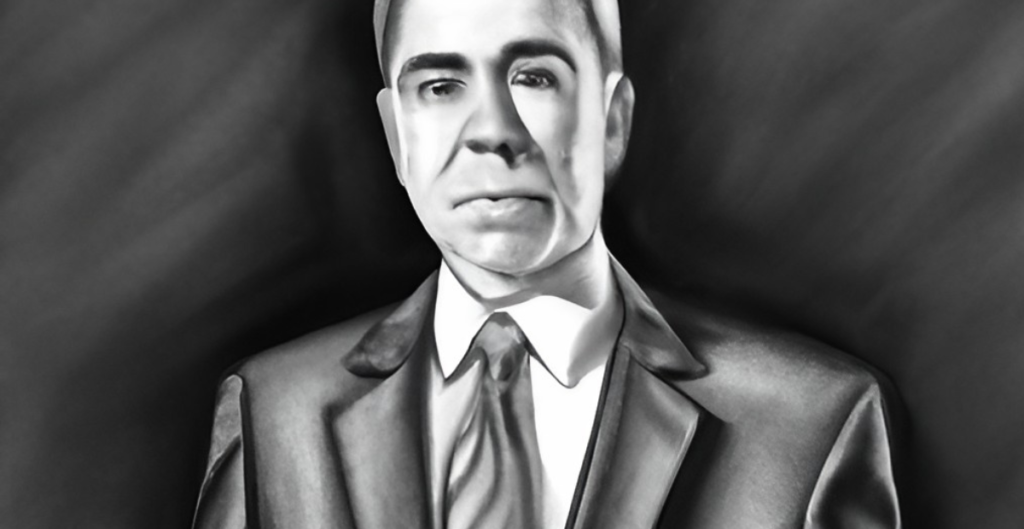7 Personality Traits of a Narcissist- An Overview
Narcissistic personality disorder is a mental health condition that is characterized by a pervasive pattern of grandiosity, a constant need for admiration, and a lack of empathy for others. Individuals with narcissistic personality disorder often have an exaggerated sense of self-importance and may believe that they are entitled to special treatment and attention from others.
They may also have a strong need for control and domination over others and may engage in manipulative and exploitative behaviors to achieve their goals. There are seven key personality traits commonly associated with narcissistic personality disorder, including an exaggerated sense of self-importance, a preoccupation with fantasies of unlimited success, power, or ideal love, a belief in one’s own superiority, a lack of empathy for others, a strong sense of entitlement, a tendency to exploit others, and a willingness to take advantage of others for personal gain.
In the following sections, we will explore each of these traits in more detail and discuss how they contribute to the complex and challenging nature of narcissistic personality disorder.
1. Fantasies Of Unlimited Power & Craves Power

People with NPD often have fantasies of unlimited power and control, believing they are superior to others and entitled to special treatment.
According to the Diagnostic and Statistical Manual of Mental Disorders (DSM-5), one of the key traits of NPD is grandiosity or an inflated sense of self-importance. This can manifest in various ways, including having fantasies about having unlimited power or control over others.
People with NPD may also crave power or control in their relationships, expecting others to defer to them or give them special treatment. They may also be preoccupied with thoughts about success, brilliance, beauty, or ideal love.
People with an inflated sense of self-importance often have an exaggerated opinion of their own abilities, talents, and accomplishments.
They may also overestimate their importance in a given situation or place a disproportionate amount of value on their own opinions and ideas. This can manifest as grandiose behavior, such as bragging or expecting to be treated like royalty. People with this trait often believe they are superior to others and entitled to special treatment.
This extreme sense of superiority can lead them to become preoccupied with fantasies about success, power, beauty, intelligence, or ideal love. They often struggle to form meaningful relationships due to their lack of empathy for other people’s feelings. People with an inflated sense of self-importance may also be highly sensitive to criticism and struggle to accept feedback from others.
People with NPD often struggle to form meaningful connections with others due to their lack of empathy and difficulty understanding other people’s feelings. They may also be overly sensitive to criticism and have difficulty accepting feedback from others.
2. They Should Associate With Special People/Status Oriented

A common personality trait of individuals with narcissistic personality disorder is a preoccupation with status and a strong desire to associate with “special” or high-status individuals. Narcissists often view themselves as superior to others and believe that they deserve to be associated with people who are also seen as superior. They may also seek out relationships and social connections with people who they believe can enhance their own status or reputation.
Narcissists often use their social connections as a means of boosting their own self-esteem and enhancing their own sense of importance. They may seek out relationships with influential people, such as politicians or celebrities, in order to gain access to opportunities or resources that can further their own goals or ambitions.
Additionally, narcissists may be very concerned with their own image and reputation and may seek out relationships with people who can help them maintain a positive image in the eyes of others. They may carefully curate their social circle to include only people who they believe can enhance their status or reputation, while distancing themselves from anyone who they perceive as being beneath them.
Overall, the tendency to associate with special or high-status individuals is a reflection of the narcissist’s preoccupation with their own importance and their need for admiration and attention from others.
This personality trait can make it challenging for narcissists to maintain healthy relationships and can contribute to their difficulty in empathizing with others and developing genuine emotional connections.
3. A Sense Of Entitlement

A sense of entitlement is a personality trait often associated with narcissists. This trait refers to the belief that one deserves special treatment or privileges without necessarily having earned them. Narcissists with a sense of entitlement often believe that they are entitled to preferential treatment or that they deserve recognition, adulation, and admiration from others simply because of who they are.
This entitlement is often rooted in a grandiose sense of self-importance and an inflated sense of superiority over others. Narcissists with a sense of entitlement may feel that they are above the rules or norms that apply to others and that they are entitled to special treatment, regardless of their behavior or actions. They may also be unwilling to accept criticism or negative feedback, and may become angry or defensive if their sense of entitlement is challenged.
Overall, a sense of entitlement is a problematic personality trait that can lead to interpersonal conflicts and a lack of empathy towards others. In the case of narcissists, this trait can be particularly pronounced and can contribute to their overall sense of superiority and lack of concern for others’ feelings or needs.
4. Lack Of Empathy

Lack of empathy is a key trait associated with narcissistic personality disorder. It refers to the inability or unwillingness to understand and relate to the feelings and experiences of others. Narcissists with a lack of empathy are often unable to empathize with others, even when they are in pain or distress. They may appear cold, indifferent, or dismissive of the emotions of those around them, and may have difficulty understanding the perspectives of others.
Here are some of the ways in which a lack of empathy can manifest as a narcissistic personality trait:
- Lack of concern for others’ feelings: Narcissists with a lack of empathy may not be able to recognize or care about the emotions of others. They may be dismissive or insensitive to the needs and feelings of those around them, and may prioritize their own needs above others.
Example: A narcissistic spouse who dismisses their partner’s feelings and needs, and consistently prioritizes their own wants and desires without consideration for how it affects their partner.
- Difficulty with perspective-taking: Narcissists may have difficulty seeing things from another person’s point of view. They may be unable to understand or empathize with the experiences of others, and may view their own perspective as the only valid one.
Example: A narcissistic boss who cannot understand why their employees may be struggling with the workload and refuses to adjust expectations or provide additional support.
- Lack of remorse: Narcissists with a lack of empathy may be unable to feel remorse or guilt for their actions, even if those actions hurt others. They may lack the ability to take responsibility for their behavior or to understand how it has affected others.
Example: A narcissistic friend who betrays the trust of their friends without remorse, and makes excuses for their behavior instead of apologizing or making amends.
Overall, a lack of empathy can make it difficult for narcissists to form meaningful relationships with others, and can contribute to interpersonal conflicts and emotional distance in their relationships. It is a key trait to be aware of when dealing with someone who may have narcissistic tendencies.
5. Arrogance And Patronizing

Arrogance and patronizing behavior are common personality traits exhibited by individuals with narcissistic personality disorder (NPD). Narcissists have an exaggerated sense of self-importance and a lack of empathy towards others. They believe they are superior to others and entitled to special treatment and admiration. This superiority complex often manifests in their interactions with others, leading them to be arrogant and patronizing.
Arrogance is the belief that one is superior to others, and this belief is often accompanied by a sense of entitlement. Narcissists view themselves as exceptional, and they feel that they deserve to be treated as such. This sense of superiority often leads them to look down on others, believing that they are inferior in some way. Narcissists may dismiss the opinions or achievements of others, believing that only their own views and accomplishments are worthy of attention.
Patronizing behavior is when an individual condescends to others, treating them as if they are inferior or incapable. Narcissists often exhibit this behavior, as they believe that they are more knowledgeable or skilled than those around them. They may offer unsolicited advice or instruction, believing that they know what is best for others. This behavior can be particularly damaging in professional or personal relationships, as it can cause the recipient to feel belittled or disrespected.
Both arrogance and patronizing behavior are rooted in the narcissist’s belief that they are superior to others. This belief is often fueled by a need for validation and admiration from others, as well as a fear of rejection or failure. Narcissists may use arrogance and patronizing behavior as a way to assert their dominance and control over others, as well as to maintain their inflated sense of self-importance.
6. Charming

Charming is often considered as a personality trait that narcissists possess, and it can be a key component of their manipulative behavior. Narcissists are often highly skilled at charming people, and they may use this ability to gain control and admiration.
At its core, charm is the ability to create an enjoyable and favorable impression on others. It is a way of drawing people in and making them feel good about themselves and the situation they are in. Narcissists may use charm to make people feel special or important, to create a sense of intimacy, or to gain trust and loyalty.
However, the charm of a narcissist is often superficial and insincere. They may use flattery, compliments, and other forms of praise to manipulate and control others. They may also use charm to distract people from their true intentions or to cover up their negative qualities.
Narcissists may also be highly skilled at reading social cues and adapting their behavior to fit in with different groups of people. They may be able to put on a persona that seems authentic and engaging, but it is often a façade designed to win over others and gain their admiration.
Overall, the charm of a narcissist is often a tool for manipulation and control, rather than a genuine expression of warmth or affection. While they may be able to win over people in the short term, their lack of empathy and concern for others can ultimately damage their relationships and lead to negative consequences.
7. Chronic Lying

Chronic lying is a common personality trait of a narcissist. Narcissists are individuals who have an inflated sense of self-importance and a deep need for admiration and validation from others. They often believe that they are special and entitled to special treatment.
One of the ways that narcissists maintain their sense of superiority is by lying. They may lie about their accomplishments, their abilities, their experiences, and even their relationships. They do this to create an image of themselves that is better than reality and to manipulate others into seeing them in a more positive light.
Chronic lying is a hallmark trait of narcissists because they often have difficulty accepting responsibility for their actions and admitting their mistakes. Instead, they may lie and shift blame onto others in order to avoid taking responsibility for their actions. They may also lie to cover up their own insecurities and weaknesses, or to maintain control over a situation.
Overall, chronic lying is a way for narcissists to maintain their sense of superiority and control over others. It allows them to manipulate and deceive those around them, and to maintain the false image of themselves that they have created.
Last words
In conclusion, understanding the seven personality traits of a narcissist can help you recognize the signs and protect yourself from their manipulative tactics.
Narcissists have an inflated sense of self-importance, lack empathy for others, crave admiration and attention, have a sense of entitlement, exploit others for their own gain, have difficulty accepting criticism or responsibility, and are prone to chronic lying.
If you suspect that someone in your life may be a narcissist, it’s important to set boundaries, maintain a healthy sense of self-worth, and seek professional help if necessary. Remember, it’s not your job to change a narcissist, but it is your responsibility to take care of yourself and prioritize your own well-being.
